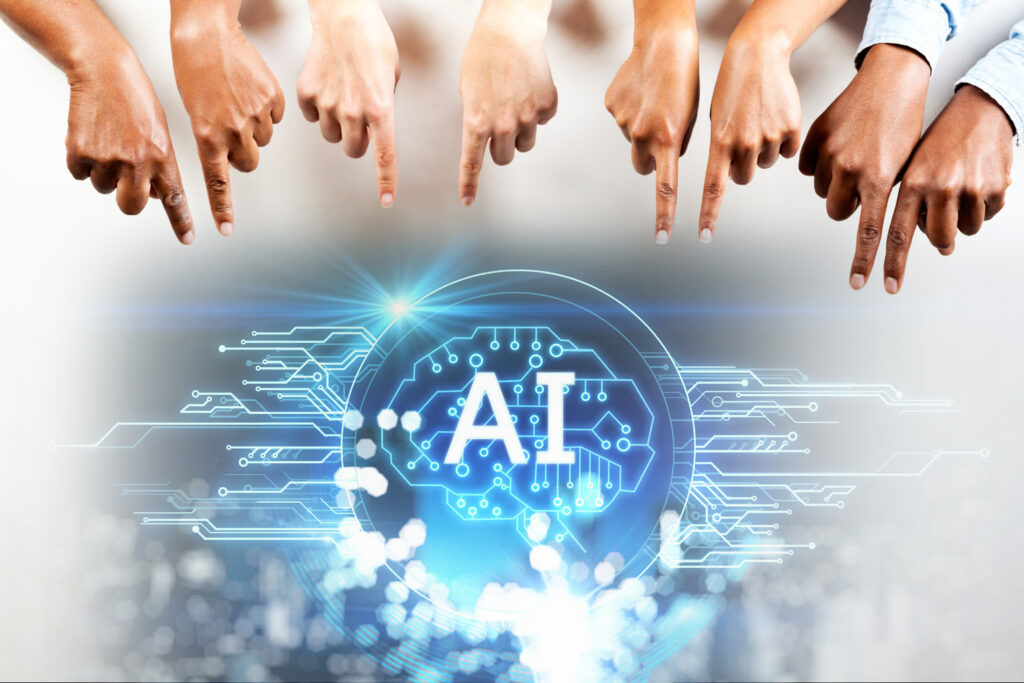AI technology has offered unparalleled prospects and improvements, revolutionizing numerous industries. These advantages have also brought up many ethical questions, which are critical to address as AI becomes more widely used.
Diving into the realm of AI ethics isn’t straightforward — it’s more like navigating through a complex web of dilemmas and gray areas.
In this blog post, we’ll examine the difficulties and solutions for handling these important concerns as we dive into the ethics of artificial intelligence. Get ready to learn how businesses may optimize the advantages of this game-changing technology while ensuring the responsible and reliable application of AI.

Challenges of AI Ethics
- Privacy Issues
Privacy is one of the most critical problems in AI ethics. Large volumes of data are frequently gathered and analyzed by AI systems to learn and make choices. Data security and user privacy are issues that are brought up by this data collection. It’s essential to make sure AI systems manage data ethically and openly.
To protect user information, businesses need to have strong security measures in place and follow data protection standards. In addition, you should inform users about data collecting in a transparent and easy-to-understand way, as well as give people choices about how to manage their data.
- Bias and Discrimination
The possibility that AI would reinforce or even magnify current biases and inequality is a significant concern regarding AI ethics. Large data sets may unintentionally teach AI systems and cause them to replicate societal biases that are inherent in the training process. This might result in unfair or unjust judgments being made, like not giving groups of individuals access to loans or jobs.
Because of this, both developers and users must think about the ethical implications of their work and take steps to minimize prejudice in AI algorithms to guarantee that AI systems are created and applied responsibly and equitably.
To prevent and reduce bias, businesses must use representative and diverse data sets, and they must continuously analyze and update AI systems. To detect and address bias, make sure AI decision-making is transparent.
- Job Displacement
Automation driven by AI has the potential to disrupt the economy and eliminate jobs, which is a serious moral conundrum because it affects people’s livelihoods and financial security. The responsibility lies in striking a balance between technological progress and social welfare, ensuring that the benefits of automation are equitably distributed.
Proactive steps to lessen the negative consequences of job displacement include giving impacted workers social assistance and possibilities for retraining and addressing potential societal ramifications, such as growing wealth inequality and structural unemployment.
- Moral Decision Making
The process of making decisions in AI is another crucial ethical dilemma. AI systems are being employed more and more to make choices in a variety of industries, including healthcare, finance, and law. Making sure these choices are transparent, fair, and responsible is the difficult part.
To resolve this, it’s critical to create AI models that can be explained and that can shed light on the decision-making process. You should provide rules for the ethical application of AI to decision-making and promote human supervision of crucial decision-making procedures.
- Autonomy and Accountability
The possibility that AI would develop sentience or self-awareness, and the capacity to make moral judgments on its own is a major AI ethics concern. This issue regards its moral standing and whether it ought to be held responsible for its deeds in the same manner that people are.
Best Practices and Solutions
Several strategies and practices have arisen to successfully navigate the ethical dilemmas presented by AI:
- Ethical Standards – Develop and abide by ethical standards that place a premium on responsibility, fairness, and transparency in the creation and application of AI.
- Constant Monitoring – Keep an eye on AI systems to identify and address prejudice and privacy violations, as well as to make sure that ethical standards are being followed.
- Public Engagement – Involve the public in conversations regarding the morality and policy of AI.
- Diverse Representation – To reduce bias in algorithms and improve moral decision-making, the AI community should place a high priority on diversity in its workforce.
- Ethical AI Education – To encourage comprehension of ethical AI principles, give resources and training to AI developers, users, and decision-makers.
- Transparency – To allow for supervision and accountability, developers and organizations need to be open and honest about the data sources and algorithms they utilize.
Conclusion
Addressing AI ethics is essential for its responsible and reliable application as technology develops and shapes our environment. Organizations can effectively negotiate ethical problems by addressing bias, protecting privacy, and fostering algorithmic openness. You should embrace ethical AI methods to maximize the technology’s transformational potential while ensuring justice, accountability, and societal benefit.
Ready to navigate the complexities of AI ethics with confidence? Partner with us to unlock the full potential of ethical AI solutions for your business! Contact us now to transcend the binary and shape a future where technology aligns seamlessly with humanity.
- AI in IoT: Benefits, Components, and Impact - April 10, 2025
- AI and Low-Code/No-Code: A New Era of Development and Innovation - February 25, 2025
- The Ultimate Guide to AI in IT Support: The Tools, Benefits & Challenges You Must Know - February 11, 2025
